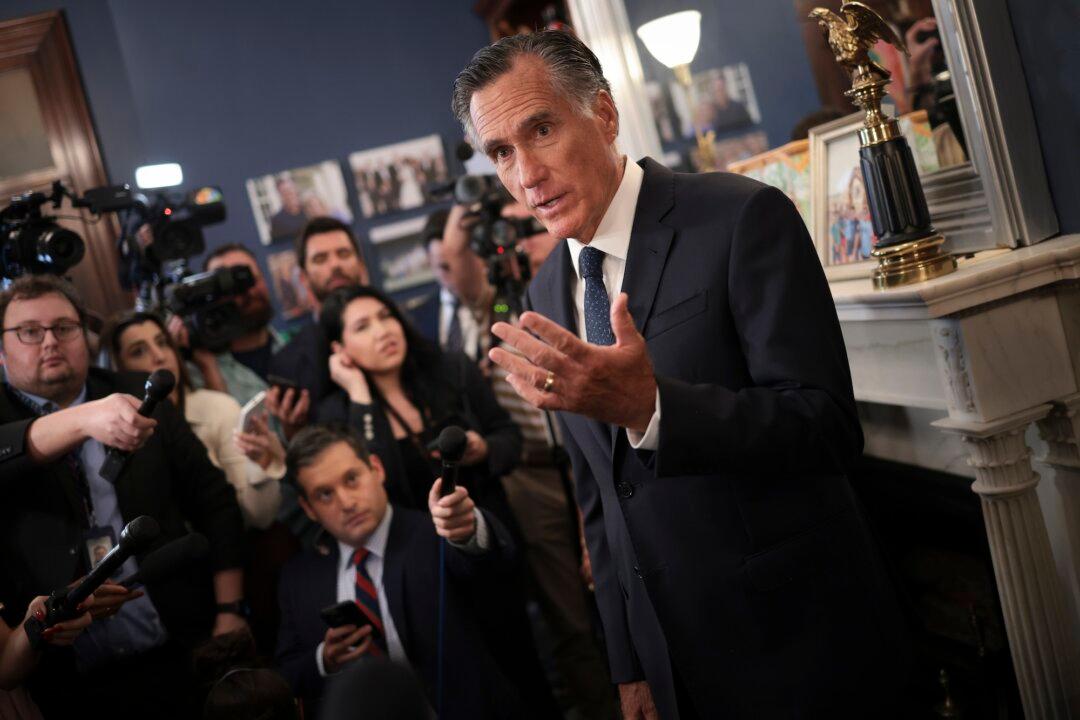Sen. Mitt Romney (R-Utah) said that former President Donald Trump made many wise decisions as president and can win in 2024 but the Utah Republican insisted he would “absolutely not” vote for him over President Joe Biden due to “character” and differences on foreign policy.
In an appearance on CNN’s “The Source” program on Wednesday, Mr. Romney said that, if the election were held today, President Trump “would probably win.”





